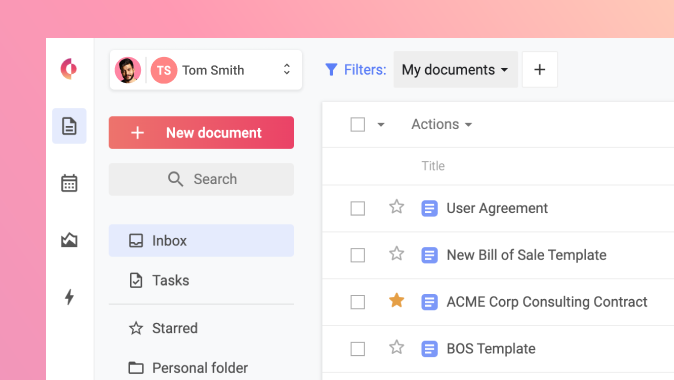3 Keys to Contract Compliance for Healthcare, Hip-HIPAA-Hooray!
Contract compliance for healthcare is essential for HIPAA compliance.
As a healthcare organization, contract compliance for healthcare is a non-negotiable: Here are 3 steps to side-stepping compliance problems—so you can say a “hip-HIPAA-hooray” to healthcare contract management, once and for all!
The 3 Leading Barriers to Contract Compliance
Health Insurance and Portability and Accountability Act (HIPAA) has been enacted for almost 25 years, so why does it continue to be complicated for HIPAA-covered entities (CEs) and business associates (BAs) to meet?
For one thing, the heft of responsibility is a burdensome one in mitigating software threats and security issues. Says the Office for Civil Rights (OCR), “CEs and BAs are required to protect their electronic protected health information, which includes identifying and mitigating vulnerabilities of computer programs and systems that could affect the security of ePHI.” (OCR)
- Organizations lack structural support to keep current – CEs as well as BAs must include HIPAA training into their organizational roadmaps, where many employees may not be adequately trained in handling contract compliance. As a healthcare organization, you may not have well-documented evidence of training to support compliance, as well.
- Software oversight can be misleading or misconstrued – Handling software compliance is a tall order for many organizations. It entails annual audits to survey risk and adherence to the HIPAA HiTech Act component.
- Data breaches are a universal threat – In an IBM Data Breach Report (“How Much Would a Data Breach Cost Your Business?”), healthcare came in as the most expensive industry, where the average data breach cost came in at $6.2 million.
Organizations must be vigilant in staying current with HIPAA regulations, and any comp. Per the HIPAA Journal, in late 2019, the Department of Health and Human Services upped penalties for lack of compliance, as an indicator that their oversight will remain equally steadfast in monitoring any compliance issues.
Here are 3 key ways to use a CLM platform for modernizing healthcare industry contracts:
1. Organize Vendors and BAs
Healthcare contract management software can oil the slowest turning cogs in your contract management process. Using a digital platform to upload thousands of contracts in little time makes it easier to find all your contracts in one place, to make sure you haven’t missed one vendor or associate agreement.
In the last few years, there’s a necessary concern for patient information—or any confidential information— transmission processes, where data might bypass security practices you have in place, says Healthcare Business & Technology.
This can be a major headache for any HIPAA-compliant organization, which contract management can help begin to solve, where two factors can greatly increase your process breakdowns: A secure contract lifecycle management (CLM) system is a single-stop platform that can be vetted for your organization’s specific compliance priorities. Cloud Service Providers (CSPs) must meet HIPAA requirements, and a CLM platform, which is typically supported by cloud-based services, is a modern partner that is invested in security compliance across sectors. What’s more, the software can also be integrated with the software your organization uses to manage confidential information, to centralize security and downgrade risk.
Not only that, but using a CLM platform will allow you to search the contract repository for specific information that will help you ensure you have every vendor and BA reconciled all in one space.
2. Track Agreements and BA Compliance with a CLM
HIPAA compliance audits for CEs involve not just your organization, but organizations you do business with (again vendors and those with whom you have business agreements), to ensure they’re also meeting compliance requirements. That’s a tall, albeit necessary order.
Digitizing the data creates transparency for any gaps. But using the right tool for this process provides you with more actions—and agency in then closing these gaps to become compliant.
With a CLM you can tick-off the checklist for HIPAA compliance:
- Ensure you have Business Associate Agreements for all BAs
- Track these BAAs annually
- Create and ensure Confidentiality Agreements for vendors
3. Increase Contract Term Visibility—to Seal Compliance
There’s no denying that trawling the depths of your paperwork is a very time-consuming project. To that end, managing your contracts on a CLM fundamentally shakes up that process. Converting to a system where tracking key clauses, and even triggering notifications around these renewals, is a game-changer.
It’s always essential you check with a trusted legal counsel to ensure correct clause verbiage for HIPAA compliance. Clauses like these from Law Insider, once vetted legally, can be tracked in each contract, with tracking reminders. This system allows your organization to have a clear audit of agreement on HIPAA compliance requirements, and to track, where necessary certain conditions are being met (such as ensuring confidentiality in both transmission and in public-facing sites). Create contracts that spell out each important responsibility so you can make sure these are upheld. Make sure you’ve clarified how confidential data will be created, tracked, searched, and stored. Likewise, create clear guidelines in your contracts for how they’ll be protected, whether against a data breach or natural disaster.
The key to compliance is confidentiality. But that can and has gotten away from organizations that are managing upwards of 10,000 contracts. The best way to rope in privacy concerns is with the support of a system that automates confidentiality concerns.
Concord’s mission is to help companies achieve scalability and efficiency by automating their most central process, contracts. The award-winning cloud-based solution designed for easy adoption enables over 300,000 users around the globe to create, collaborate, sign, store, and manage their agreements all in one place. Founded in 2014 and headquartered in San Francisco, Concord is built by business, for business.



